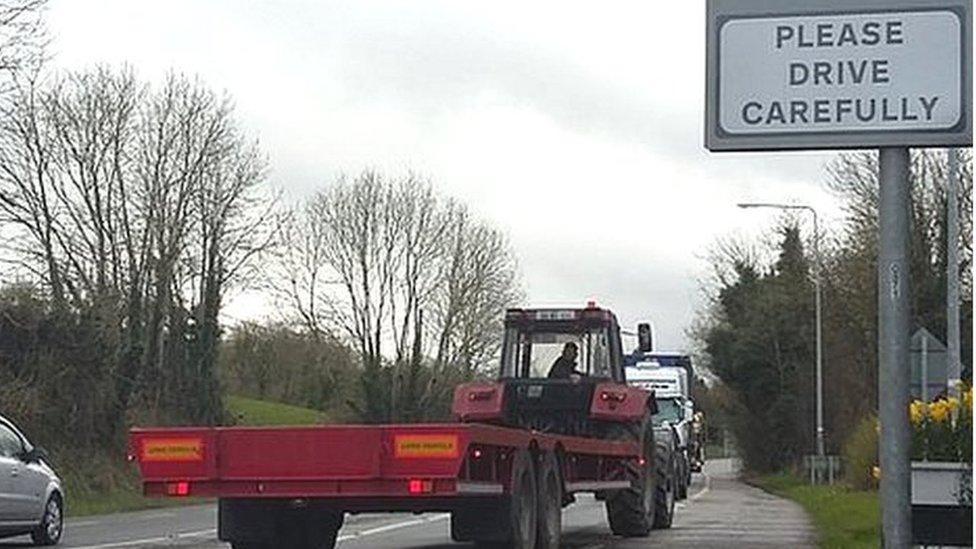European Ploughing Championships arrive in Ballykelly
- Published
Ploughmen and ploughwomen from across Europe have rolled into Ballykelly for the competition
Competitors from all over Europe are in Ballykelly, County Londonderry, for the 37th European Ploughing Championships.
The event should have been held in 2020 but was delayed by the Covid-19 pandemic.
A hundred competitors will take part in seven different classes of ploughing, including world style conventional, vintage class and horse class.
Young farmers also get their own category.
Ploughmen and ploughwomen from France, Belgium, the Netherlands, Switzerland and Denmark will join the four UK nations, Ireland and the Isle of Man at Shackleton Barracks for the two-day event.
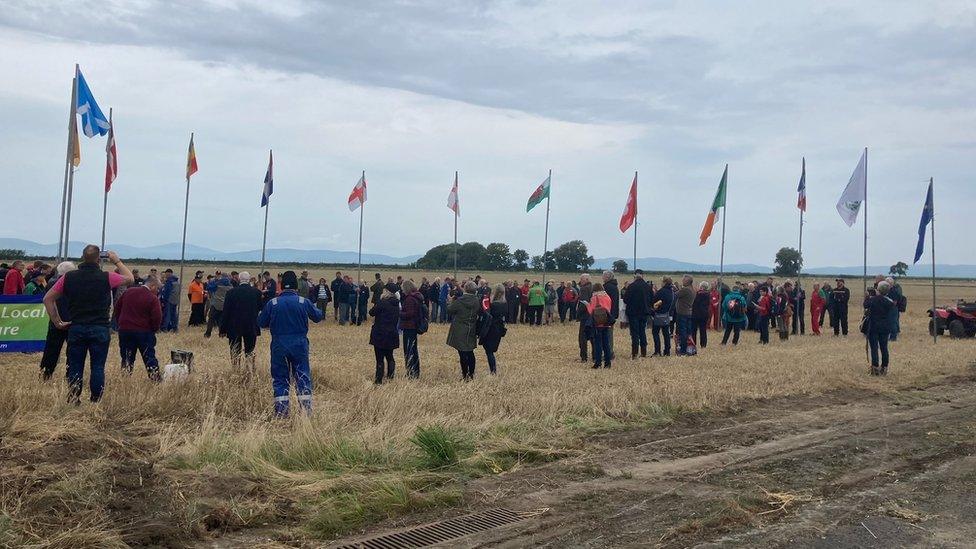
Flags representing the various nationalities taking part were on display
The fields of the low-lying barracks site offer an even surface for the competitors to show off their skills to the thousands of spectators that are expected to attend.
"There will be something for the whole family to enjoy, with horse ploughing, a vintage display, children's attractions and lots of trade stands and a craft area," said Adrian Jamison, chair of the Northern Ireland Ploughing Association, which is hosting the competition.
Essential farming skills
Many of the competitors have travelled long distances from across Europe and spent considerable amounts of money to bring their machinery with them, according to William King, president of the association.
He described it as competitive sports event that was not about prize money but more about demonstrating skills that are essential for the development of the farming industry.
"It's an important factor from the husbandry point of view and good agriculture," Mr King said.
"I think every farmer looks to have his land ploughed well to produce good crops and we encourage young people coming into the sport to be able to do that."
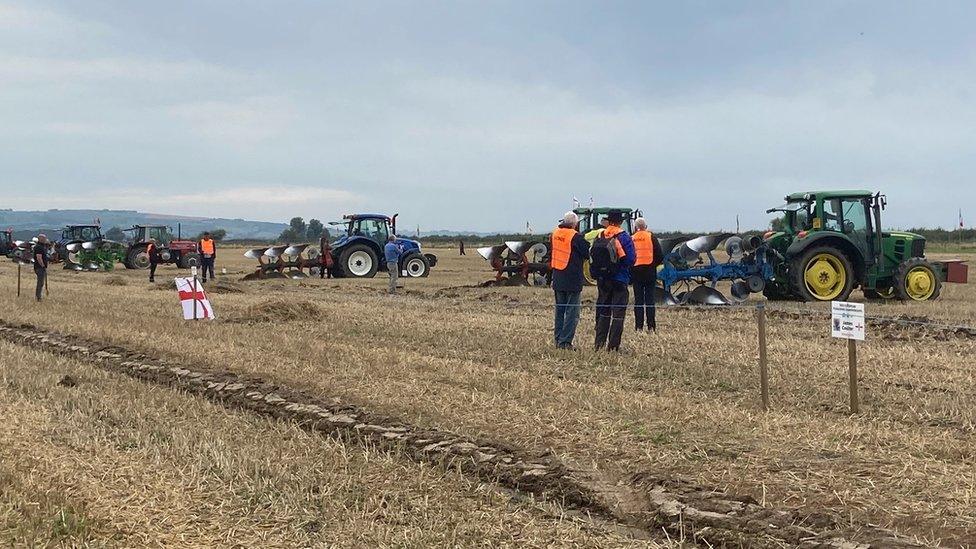
There are medals and trophies on offer for the best ploughmen and ploughwomen
He added that there was a lot of competition in the vintage ploughing categories.
"This is something that vintage people take pride in", he said.
"They take pride in the different makes of ploughs, they take pride in different makes of tractors and it's certainly something unique to go back all those years and see the maintenance that has been provided for them."
Experienced ploughman
Northern Ireland team member Dai Kennedy, from Listooder in County Down, is one of the most experienced ploughmen in the competition.
"Ploughing was always something I did with my father - he was heavily involved in the Listooder and District Ploughing Society," said 71-year-old Dai.
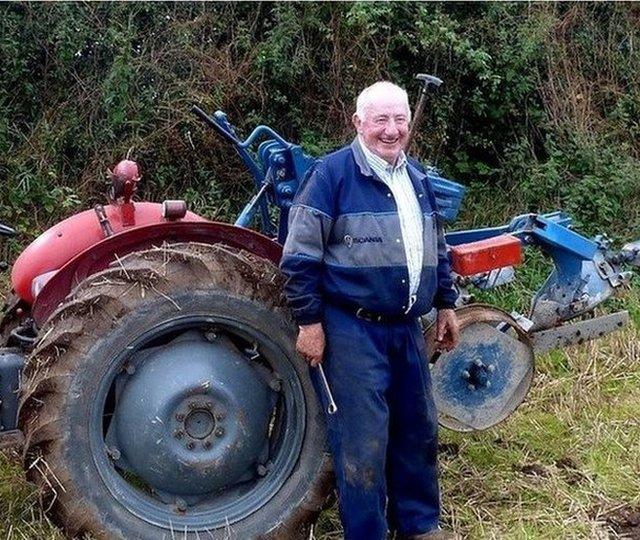
Listooder man Dai Kennedy has been ploughing since he was 10
"He passed away when I was 13 but his interest and enjoyment of it has always stuck with me.
"I think I was about 10 years old in the first match I ploughed in but even then I was only steering the tractor.
"It really is something you fall in love with and it really stays with you."
"It makes me very proud to represent Northern Ireland in any way I can.
"It gives me a lift, no matter how well it goes - I enjoy it immensely and I'm looking forward to getting back to it after a long three years."
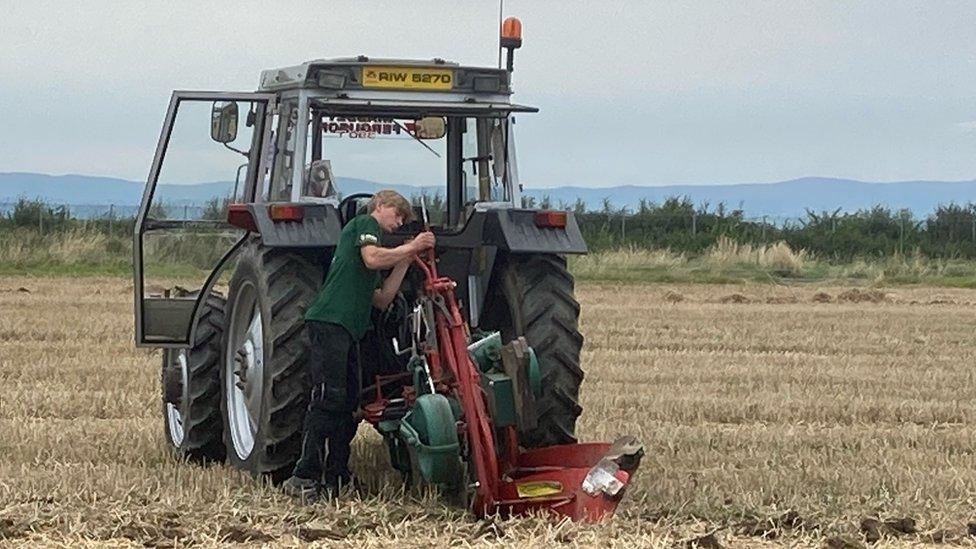
The equipment has to be well maintained
Top of the class
The last European Championships were held at Springpark in Ballinaboola, County Wexford, in the Republic of Ireland, in 2019.
Then Ireland came top of the classes, with team members claiming golds in both the conventional and reversible categories.
The 37th competition should have been held in the Czech Republic but when the pandemic hit it was postponed and then eventually rescheduled in Northern Ireland.
The European event will allow some to flex their competitive muscles ahead of the World Ploughing Contest, which takes place on 21 and 22 September in Ratheniska, County Laois in the Republic of Ireland.
- Published4 October 2018
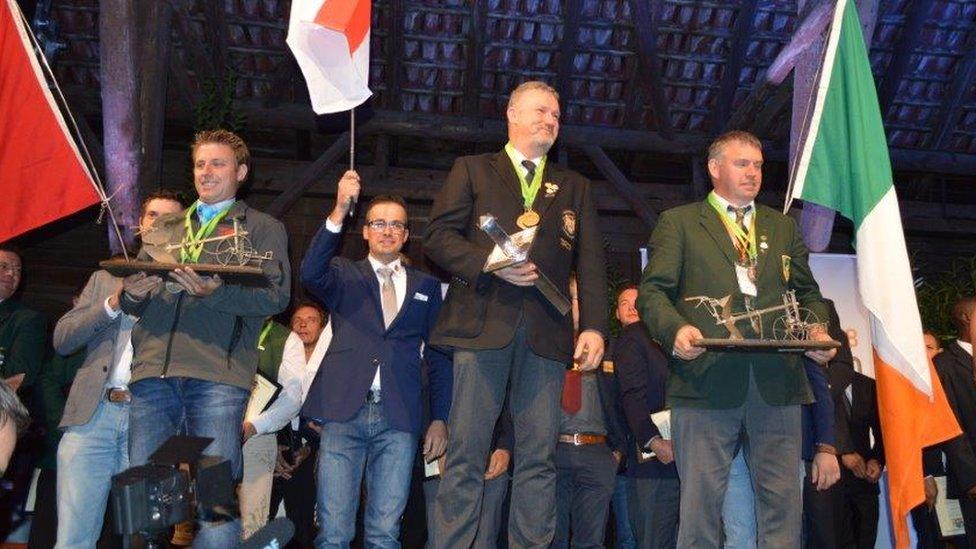
- Published29 March 2017
